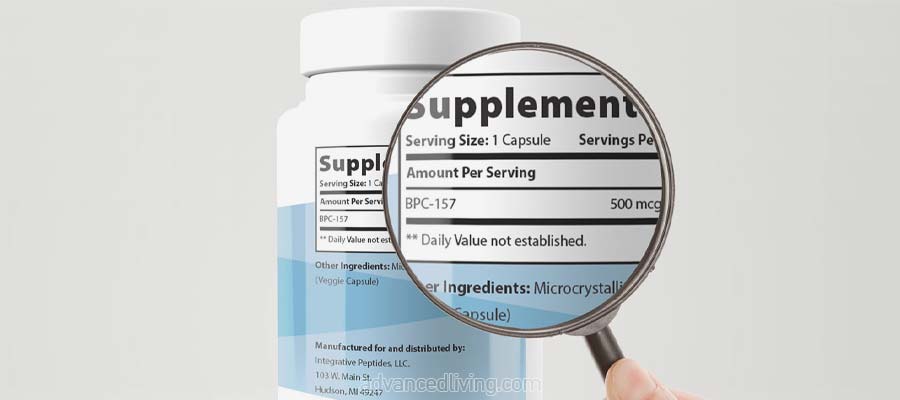How to Spot a Weight Loss Scam: Top 18 Tips to Avoid Bad Diet Pills and Other Scams
Many people look for weight loss shortcuts. Unfortunately, many of these people encounter weight-loss scams.
Diet pill scams, bad weight loss programs, and unhealthy tips are some of the weight loss scams found online.
Some diet pills claim you can lose 30 pounds of weight in a week. Or, a weight loss ‘guru’ might charge $300 for a 30-minute virtual session, providing basic weight loss advice you could have found online for free.
Weight loss scams become more common around the holidays. People look for easy, quick ways to lose weight. Today, we’re highlighting some of the most common weight loss scams – and how to avoid them.
Contents
Watch Out for Suspicious Phrases

Weight loss scams frequently use the same phrases for marketing their miracle cures to the world. Watch out for suspect phrases like:
- “Lose weight with no changes to diet or exercise.”
- “Clinically proven to burn fat.”
- “Backed by scientific evidence.”
- “Burn 30 pounds in 30 days. “
- “Thousands of happy customers.”
- “FDA certified.”
Some legitimate diet pills use the phrases above. In most cases, however, these phrases are associated with diet pill scams.
When a diet pill claims to be “FDA certified,” for example, the diet pill is not actually certified by the Food and Drug Administration for weight loss. In fact, the FDA doesn’t certify weight loss supplements at all. Instead, the supplement is produced in an FDA-registered facility (a legal requirement) and made using ingredients the FDA has not banned (another legal requirement). In other words, any supplement legally certified in the United States is “FDA certified” under this definition, and it doesn’t really mean anything.
Similarly, few diet pills are “clinically proven to burn fat” in any reputable scientific studies. Many diet pills have shown small weight loss results in a small number of studies involving few participants, but most diet pills are not backed by significant weight loss evidence.
If you see one or more of the above phrases on a diet pill’s website, it’s a red flag you’re dealing with a diet pill scam.

Lose Weight Without Diet, Exercise, or Effort
Losing weight is hard. It doesn’t matter if you’re strong-willed, has a personal trainer, or have the best metabolism in the world: weight loss isn’t easy.
That’s why you should be wary of diet pills that claim otherwise. Plenty of diet pills sold online today advertise themselves as easy, effective weight loss cures.
One of the most common strategies among diet pill companies is to advertise the diet pill as an easy way to lose weight “without diet or exercise.”
For most people, it’s impossible to achieve significant weight loss without diet or exercise. You lose weight by maintaining a caloric deficit: when you burn more calories than you consume, you lose weight. It’s that simple.
When a diet pill claims to offer easy weight loss without diet or exercise, it’s probably a scam.
Be Wary of Cures, Treatments, or Preventative Measures
Some diet pills claim to do more than help you lose weight: they claim to “reverse” diabetes, “cure” metabolism issues, or solve other health problems.
It’s illegal for supplements to market themselves as a cure, treatment, or preventative measure for anything. Based on FDA regulations, only drugs can advertise themselves like these things. Supplements aren’t drugs, and they cannot market themselves as cures.
If a diet pill claims to “cure” anything, “reverse” a health condition, or have other drug-like effects, then you’re probably dealing with a diet pill scam.

Fast Weight Loss Results
Some diet pills promise easy, fast weight loss results. They claim you can quickly lose 10 pounds in just a few days, for example.
It’s possible to lose a lot of weight in a short period of time. If you stop eating and drinking water, for example, and start exercising and sweating vigorously, then you’ll inevitably lose weight. Professional fighters use this strategy to make weight.
But you’re not a professional fighter, and you’re not looking for short-term weight loss to make your weigh-in.
Real weight loss takes time. Sure, you could stop eating or drinking to lose weight quickly. But this messes up your metabolism. And, as soon as you start eating again, you’ll gain back all the weight you lost.
Real weight loss takes time and effort. Don’t be fooled by a diet pill that claims otherwise.

Be Wary of Weight Loss “Secrets,” “Shortcuts,” and “Hidden Tricks”
You can find plenty of weight-loss advertisements offering “one weight loss secret” or a “diet shortcut.” These advertisements lure you in with claims of easy, fast weight loss.
In reality, weight loss breakthroughs are rare. If a scientist suddenly discovered a weight-loss cure that offered easy, fast, and effective weight loss, it would be the biggest news story of the year.
Obesity is a crisis in many countries around the world. If a single company discovered some miracle cure for weight loss, it would be a huge news story.
If a company tries to convince you they’ve discovered a miracle cure, secret, or shortcut for weight loss, then you’re probably being scammed.
Watch for Warnings About “Big Pharma”
Many diet pill companies claim to have a cure for weight loss – but they’re being “attacked” by big pharmaceutical companies about this cure.
Some companies claim there’s a “conspiracy,” for example, and that large pharmaceutical companies are blocking the release of the diet pill because it threatens the “billion-dollar drug industry.”
If you stumble upon a sales page or presentation that mentions “Big Pharma,” then close the page immediately: you’re being scammed. Big Pharma is attacking no reputable supplement company, and Big Pharma has never shut down any reputable weight loss supplement.
If you see or hear the words “Big Pharma” on a diet pill website, you’re probably being scammed.

Vague Scientific Claims or Clinical Trials
99% of supplements have not gone through any clinical trials or scientific studies verifying their effectiveness. Certain ingredients in these supplements may have gone through clinical trials, but most diet pill companies cannot afford to conduct a clinical trial.
If a diet pill company vaguely claims to have “thousands” of verified users or weight loss results, then you’re probably being scammed. Scientific studies or clinical trials don’t back even the world’s most reputable diet pills.
The best diet pill companies do invest in clinical trials. They spend millions of dollars completing clinical trials. When these companies invest in clinical trials, they want to share those results with the world. They publish the results in peer-reviewed journals. They spread the news far and wide.
If a company claims to have completed a clinical trial or scientific study, then check that study. See if it was published in a peer-reviewed journal or completed in a double-blind, placebo-controlled environment. If you can’t find the study, then it never took place.
Don’t fall for vague scientific claims or clinical trial results.
Mysterious Percentage Claims
An old internet marketing trick is to make vague percentage claims without referencing any data.
It’s easy for a diet pill to claim to cause “powerful weight loss results in 85% of participants”, for example, or “burn fat 75% faster” than other leading weight loss solutions.
If a diet pill company claims a specific percentage but refuses to reference a specific statistic, then it’s likely the company is fabricating the percentage.
Complicating matters further is that percentage claims are often meaningless. It means nothing to claim your diet pills “burns fat 75% faster”, for example. Faster than what?

Check the References Page Carefully
Nobody likes reading through a lengthy list of references. Most readers trust the company to cite accurate data.
We actually read every reference page, and we verify each reference against each diet pill. Some diet pill companies cite reputable studies that use the same dosages and ingredients.
Other diet pill companies, however, cite random studies that have nothing to do with the formula. We’ve seen diet pill companies cite studies on unrelated topics, for example. Readers see a reputable URL and never check it – and the diet pill company gets away with the scam.
If you’re suspicious about a diet pill scam, check the references page. The best diet pills cite legitimate studies using similar ingredients and dosages. Diet pill scams do not.
Automatic Shipment (Autoship) Programs
Scam diet pill companies bundle their products with automatic shipment programs (also known as auto-ship programs).
Autoship programs are virtually scams – but technically, you sign up for these scams in the terms and conditions. If you read the fine print on the ordering page, you’ll learn that you sign up to receive automatic shipments of diet pills every month – often at an inflated price of over $100 per bottle.
Reputable companies don’t rely on auto-ship programs to sell their diet pills. If the company hides unusual terms in its Terms and Conditions on the official products website, then you’re probably being scammed; before purchasing the product, scroll down, and check out the Terms and Conditions beforehand.
Hidden Fees
Many diet pill scams come with hidden fees. They bundle additional products or subscriptions onto your purchase.
They charge absurdly high shipping fees, add weird surcharges onto your order, and do other things to extract every dollar from your credit card.
High Shipping Fees
Shipping a supplement around the world is no longer expensive. You should not pay more than $5 to ship a supplement bottle anywhere in the world.
Despite the historically low shipping fees worldwide, some diet pill scams charge shipping fees of $10 to $15 – which is absurd given the costs of shipping.
Be wary of diet pills that come with high shipping fees.

Unfair Refund Policies
All reputable supplement companies offer a 30 to 60-day refund policy – or even better. If you’re unhappy with your supplement, you can request a complete refund within 30 to 60 days (or better) with no questions asked.
Diet pill scams take a different approach. They only accept refunds on unopened, unused diet pills, for example. Or, they require you to ship your supplement to far-flung locations – like a random factory in Asia – to receive your refund.
Every reputable diet pill company makes it easy to request a refund. Bad diet pill companies make it hard. There are no exceptions.
Limited Manufacturing Location or Ingredient Sourcing Information
Most cheap diet pills are made in Asia or sourced from ingredients in Asia. That’s okay – we’re not biased against Asia. However, we are biased against companies using cheap, unverified, inorganic ingredient sources for their supplements.
When companies formulate supplements, they condense ingredients into purified extracts. These purified formulas contain concentrated pesticides, heavy metals, and other toxins present in the original ingredient sources.
When diet pills refuse to disclose ingredient sources, manufacturing location, or other aspects of their supply chain, it’s a sign you’re being scammed. Reputable supplement companies disclose all of this information.
Lack of Manufacturer Transparency or Contact Information
A shocking number of diet pills are white-labeled versions of other supplements. In fact, many diet pills are the same formulas marketed under 100 different names.
When the diet pill company refuses to disclose manufacturing information, contact information, factory location, and other information, it’s a sign you’re dealing with a diet pill scam.

Watch for Fake Reviews
The worst diet pill scam websites are filled with fake reviews and testimonials. Some guy named “Mike from Iowa” might claim to have lost 30 pounds using this miracle weight loss program – but in reality, Mike from Iowa doesn’t exist, and this review is fabricated.
When a sales page emphasizes reviews over scientific evidence, it’s a good sign you’re dealing with a weight loss scam.
Proprietary Formulas or Lack of Ingredient or Dosage Information
Some of the world’s best weight loss supplements use proprietary formulas. With a proprietary formula, the company lists the specific ingredients but not individual dosages. With trusted companies, that’s okay.
However, with scam diet pill companies, lack of dosage information is not okay. Many scam diet pill companies refuse to disclose ingredients or dosage information.
When a supplement does not disclose its full list of ingredients or dosages, it makes the supplement impossible to compare to other supplements or scientific studies.
Remember: good supplements with strong dosages want to advertise those strong dosages. When a company does not disclose dosage information, it means they don’t have strong dosages.
Webinars, Summits, and Other Online Events
Many weight loss scams come in the form of webinars, summits, and other online events.
These events lure you in with claims of ‘free’ health advice. In reality, they’re the same video presentations repeated over and over again to sell overpriced diet pills.
There are plenty of legitimate webinars that teach viewers valuable health insight. However, be wary of weight loss webinars that promise easy results, fast weight loss, and other suspicious benefits.
Top 4 Tips for Avoiding Weight Loss Scams
Ultimately, you can avoid 95% of weight loss scams using the following strategies:
Read the Fine Print: Check the terms and conditions. Read the fine print on the sales page. Many diet pills avoid legal punishment because they disclose their hidden fees in the fine print. Don’t be a victim: read the fine print before buying anything online, especially a diet pill or weight loss program.
Verify Transparency: Is the manufacturer transparent with its email, phone, address, manufacturing location, and ingredient sources? All reputable supplement companies disclose this information.
Check the Science: Good weight loss programs are backed by legitimate science. Bad weight loss supplements are not. Check the science, read a few of the cited studies, and verify the presence of double-blind, placebo-controlled studies.
Read Reviews on Other Websites: Diet pill scam websites are often filled with fake reviews from people who claim to be customers. Please take 30 seconds to Google a diet pill before you buy it. See what people on other websites say.
By following these basic tips, you can avoid the vast majority of weight loss scams online today.
















